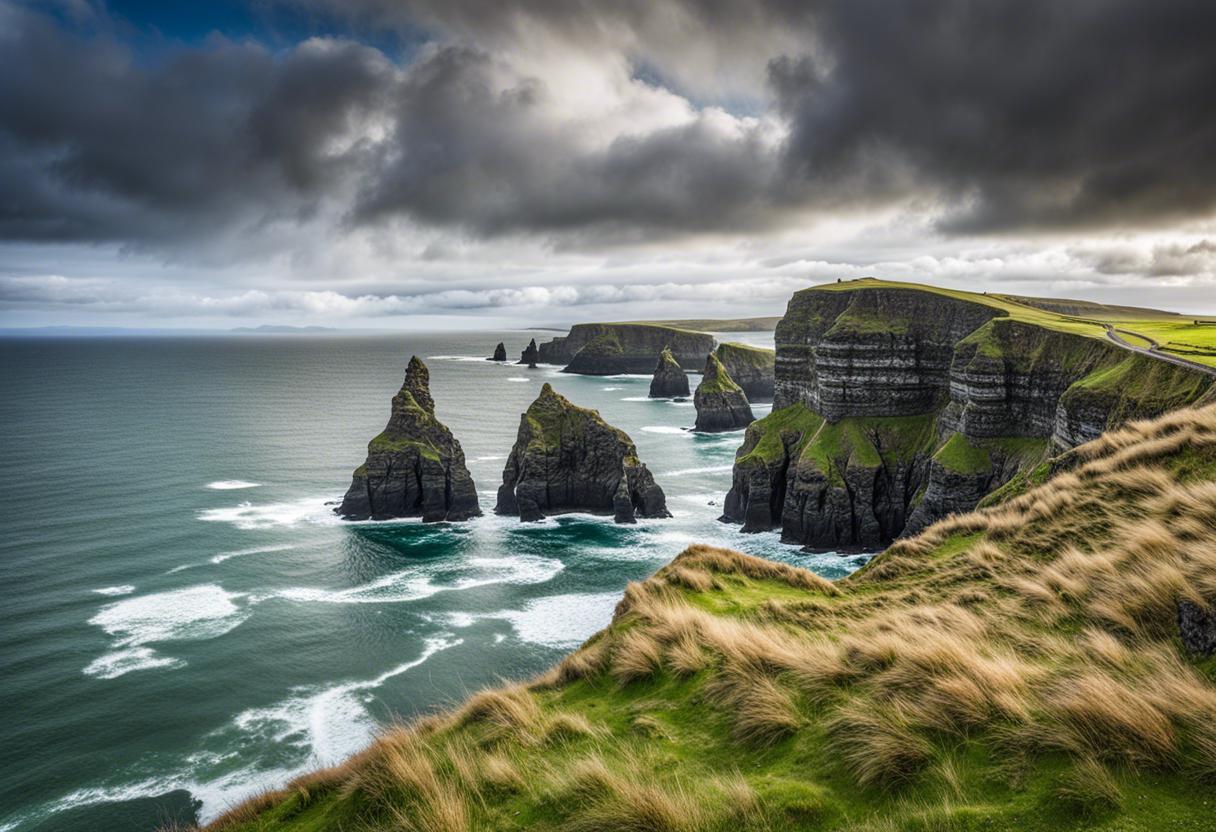The philosophy exists that images of polar bears on dwindling ice floes aren’t the most effective representation of our climate’s dire straits. Despite the grim imagery, it fails to stimulate an adequate reaction. This cognitive dissonance, the theory suggests, is further exacerbated by the inability of scientists to effectively describe the immediate peril facing humanity and the planet.
However, the three-part series, Rising Tides: Ireland’s Future in a Warmer World, hosted on RTÉ 1 by Philip Boucher-Hayes, takes a more comprehensive view, spanning from Greenland to sub Saharan Africa, Bangladesh to Miami, and Australia, with additional places in between.
Counted among RTÉ’s most significant nature productions, featuring a budget of €750,000, it succeeds in addressing this issue. The series continually underscores threats such as vanishing ice caps, thawing permafrost, and the forced migration catalysed by the climate crisis. Furthermore, it connects these global events to the potential impact on Ireland.
Ireland cannot skirt the effects of rising sea-levels, set for a potential five-metre increase in the coming centuries. Additionally, the melting Arctic tundra is set to release vast quantities of CO2 and methane further accelerating global warming. It also addresses the potentially catastrophic migration resulting from regions becoming uninhabitable.
The series does not fall into the common trap of blaming scientists who urgently warn against what climate models predict. This method has, in the past, unfairly targeted individuals, rather than major carbon polluters, particularly the fossil fuel industry. Instead, the series uses real-time data from critical locations, suggesting that these events are unfolding at a faster rate than expected.
Geared toward those who trust the scientific community but may lack understanding of the necessity for radical action, it emphasises a ‘show, don’t tell’ strategy. However, the host does deliver a sobering conclusion at the end of each episode.
The urgency of combating the accelerating climate crisis is effectively portrayed, without any attempts to downplay or sensationalise the situation. This presentation highlights the dire condition of our planet yet also emphasises the opportunities we have to address this issue through emission reduction, proper preparation for impending climate disruptions, and active restoration of our natural environments. The urgency lies with us, the present generation, to put these strategies into action.
Earth Horizon Productions, under the supervision of Marcus Stewart, present a distressing depiction of our Earth via powerfully shot films. Drone footage captures previously vibrant snow-draped glaciers now haunted by a dull, grey pallor due to the release of black carbon from unabated melting. This serves as a poignant visual reminder of how rising temperatures contribute to global overheating.
The focus then shifts to the importance of adaptation – providing solutions alongside striving for net zero carbon emissions within the next few decades. As the series, Rising Tides, puts it forth, despite the urgency, this concept has not gained sufficient traction among politicians, policymakers, or local authorities. Highlighted is the stark statistic that every prominent Irish city faces a five percent risk of witnessing a calamitous two-metre high sea-level rise within this century. One notable exception is the Netherlands, who excel in forward-thinking adaptability instead of reactively strategising for emergencies.
The cost of adaptation does not have to be astronomical. An economical alternative lies in nature-focussed solutions, proven effective by Bangladesh. Despite being one of the poorest and most climate-impacted countries, Bangladesh’s approach shows the extensive possibilities of global adaptation when tackling flooding, famine induced by persistent droughts and rampant forest fires.
Rising Tides corrects the misconstrued notion that modest countries like Ireland, with seemingly insignificant emissions, have no cause for concern. The unsettling fact is, cumulatively, these small states produce a third of the world’s emissions. Furthermore, the series emphasises that climate disruption will irrefutably dominate our future narratives. The only certainty in the ensuing chaos is the urgent requirement for strong administration, united efforts for mankind’s benefit, defined strategies and support for the vulnerable populations.
The creators of the programme have claimed to have reduced their carbon emissions as much as possible, choosing options with less carbon output than air travel when feasible. A reduced crew of three led to fewer flights and subsequently lower emissions. For shoots in Irish locations, they used cars – favouring electric ones if available – and trains. In instances when local teams could be utilised, these were the first choice, but telling a truly international tale of climate change necessitated some unavoidable air travel. The upcoming show, ‘Rising Tides: Ireland’s Future in a Warmer World’ is set to be broadcast on RTÉ 1 this Wednesday at 9.35pm.

